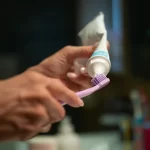
Choosing the Best Toothpaste for Your Dental Needs
November 26, 2024
6 Teeth Flossing Benefits You Should Know About
January 15, 2025Dental emergencies can happen at any time. The last thing you want to deal with is a throbbing tooth or a sudden injury to your mouth. Knowing what meets the criteria of a dental emergency and how to handle them can make a huge difference. In this blog, we’ll outline what’s considered emergency dental care, the most common emergencies, how soon you should see a dentist and the procedures you might need.
What Is Classed as a Dental Emergency?
So, what exactly qualifies as a dental emergency? While it’s tempting to try and tough out a little pain or discomfort, some situations call for immediate dental care. Dental emergencies usually need urgent attention to avoid more serious issues down the road.
Here are some common examples of dental emergencies:
Severe Tooth Pain: When a toothache is sharp, constant, or accompanied by swelling or fever, it’s a clear sign that something’s not right. It could be because of an infection, a deep cavity, or even a cracked tooth.
Knocked-out or Broken Teeth: If you’ve lost a tooth in an accident or sports injury, you need to act fast. If the tooth is intact, there’s a good chance your dentist can save it if you get to them in time.
Abscesses and Infections: Abscesses can be extremely painful and, if left unresolved, can lead to dangerous complications like spreading infections.
Swollen or Bleeding Gums: Persistent bleeding or swelling of the gums could point to an underlying issue such as an infection, gum disease, or an injury.
Broken or Lost Dental Restorations: If you lose a filling, crown, or other dental work, it’s important to get it fixed promptly to avoid further damage or discomfort.
The Most Common Dental Emergency
When you think of a dental emergency, what’s the first thing that comes to mind? If you’re thinking tooth pain, you’re right! Severe toothaches are by far the most common reason people seek an emergency dentist.
Tooth pain can have many causes, including cavities, cracked teeth, or infections. A sharp or throbbing toothache is a signal that something isn’t right inside your tooth. If you notice swelling in your gums or around the tooth, it could be an infection that needs to be addressed immediately.

How Soon Should a Dentist See You in an Emergency?
If you’ve got a dental emergency, time is of the essence. You might be wondering, “How soon should I actually get to the dental clinic?” The simple answer is the sooner, the better. While some dental issues might not feel urgent, they can escalate quickly.
For some dental emergencies, like a knocked-out tooth, the “golden hour” rule applies. If you act quickly and see your dentist within an hour of losing a tooth, there’s a good chance they can save it by reimplanting it. The longer you wait, the more difficult (and expensive) it becomes to save the tooth.
For other emergency dental issues, like abscesses or severe pain, waiting a few hours can make things worse. The infection may spread, or the problem can get bigger. You shouldn’t delay seeking dental care, whether it’s a cracked tooth or bleeding gums. Many dental offices offer same-day emergency dental services and can book an emergency appointment for you.
Emergency Dental Procedures
So, what can your dentist actually do when you arrive for emergency dental care? It depends on the situation, but here are some of the most common procedures performed during dental emergencies:
- Root Canal Therapy: A root canal is often required if a tooth becomes infected or severely decayed. The dentist removes the infected tissue inside the tooth, cleans it, and then seals it to prevent further damage.
- Tooth Extraction: A tooth can sometimes be too damaged to save. In these cases, a dentist will extract the tooth to prevent infection from spreading. If you need an extraction, your dentist will walk you through your options for replacement, like implants or bridges.
- Tooth Reimplantation: If you’ve had a tooth knocked out, time is critical. If the tooth is intact, your dentist will work to reimplant it. Make sure you follow the right steps to preserve the tooth, such as keeping it moist (preferably in milk) and getting to the dentist quickly.
- Dental Restorations: Broken crowns, fillings, or other dental work need to be fixed immediately to avoid further issues. Dental treatments include repair or replacement to restore function and appearance.
- Abscess or Infection Treatment: Abscesses can be extremely painful, and if not treated right away, they can lead to serious complications. Your dentist might drain the abscess, prescribe antibiotics, or perform a root canal to eliminate the infection.
Dealing with Dental Emergencies
Dental emergencies can be stressful and painful, but knowing what counts as an emergency and when to seek care can make a difference. The sooner you act, the better in these scenarios.
If you’re experiencing a dental emergency, don’t hesitate to contact your dentist immediately. Ovation Dental offers emergency dentistry in New Westminster and can help get you back on track fast. Call Ovation Dental and get the care you need when you need it, or book an appointment to maintain your oral health.



